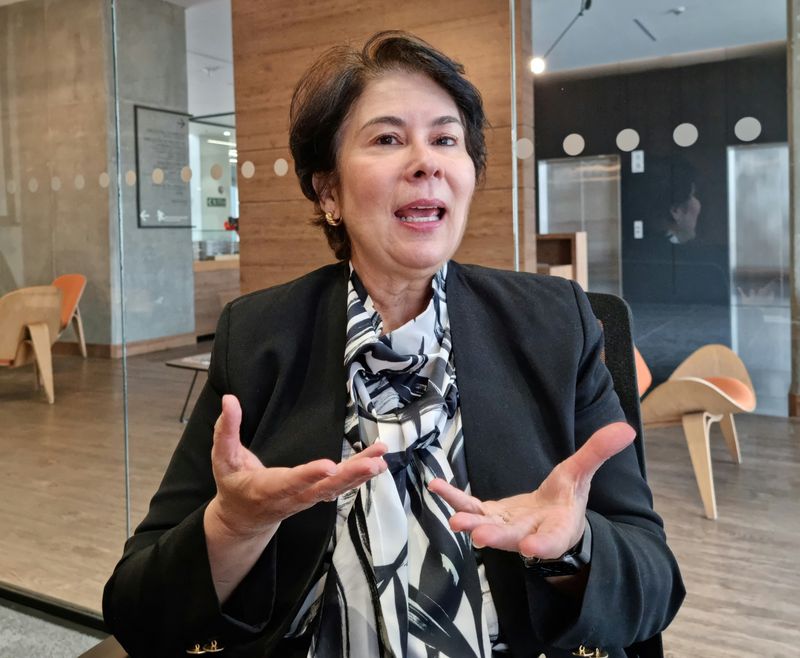By Luis Jaime Acosta
BOGOTA (Reuters) - Consumers will choose drinking coffee at home over cafes and restaurants due to rising inflation and risks of recession in coming months, the executive director of the International Coffee Organization (ICO) said on Friday.
International coffee supply has not been able to meet demand at a time when inventories are low, said Vanusia Nogueira, attributing the lower global harvest in the 2021/22 coffee year to the effects of climate change.
"We have many climate problems in the top producing regions," she told Reuters in an interview in Colombian capital Bogota. Although coffee prices had risen, growers were unable to deliver more product due to the climate-related issues, she said.
Total production for the 2021/22 coffee year hit 167.2 million 60-kilogram bags, down 2.1% from 170.83 million bags in the previous coffee year, according to ICO statistics, which found global consumption of coffee rose 3.3% to 170.3 million bags.
Coffee prices are expected to remain stable in 2023, Nogueira said.
As during the coronavirus pandemic, consumption is expected to increase in homes and decrease in cafes and restaurants, but overall volumes of sales and consumption should remain stable, she said.

"I don't think there will be an impact in terms of volumes, but in the way coffee is drunk and in the quality, people are going to lower the quality of what they drink and change where they drink it," she said, warning that producers of specialty coffees could be hardest hit.
Climate change is the coffee industry's biggest challenge, she said, adding that the ICO is working on creating a resilience fund alongside banks and other organizations to look more closely at productive zones and climate change-resistant coffee varieties.
